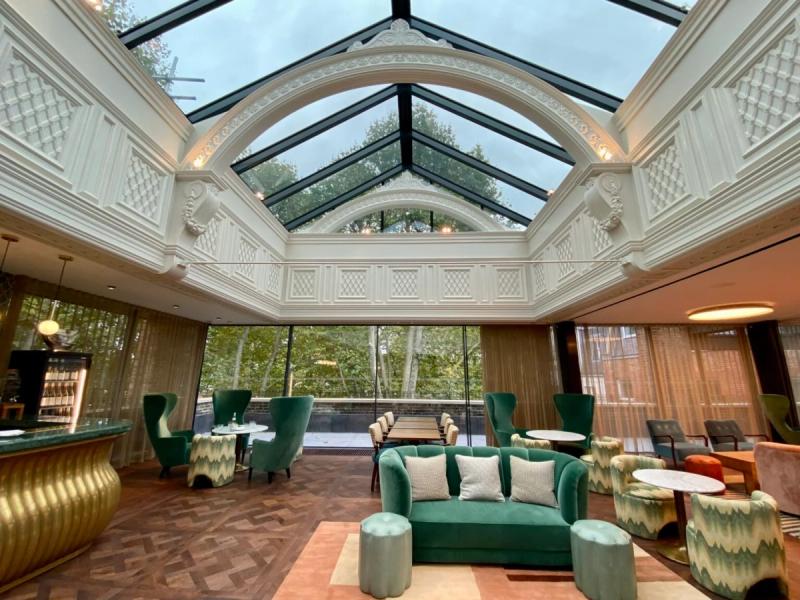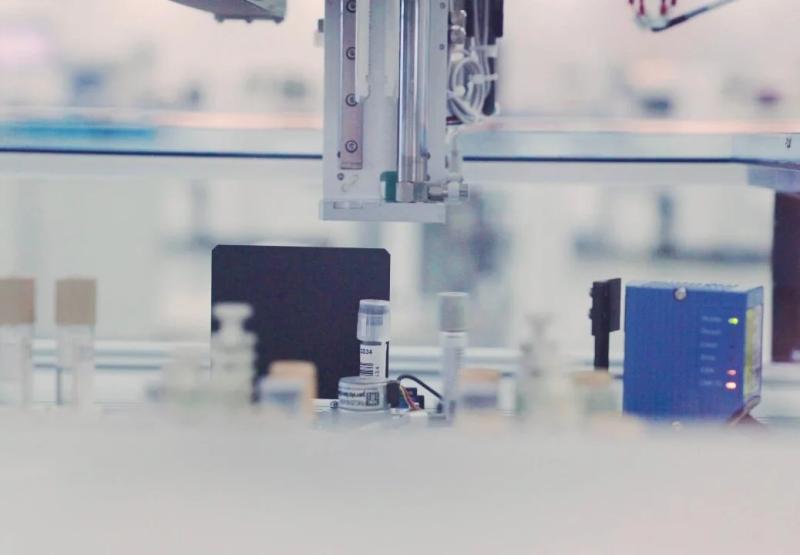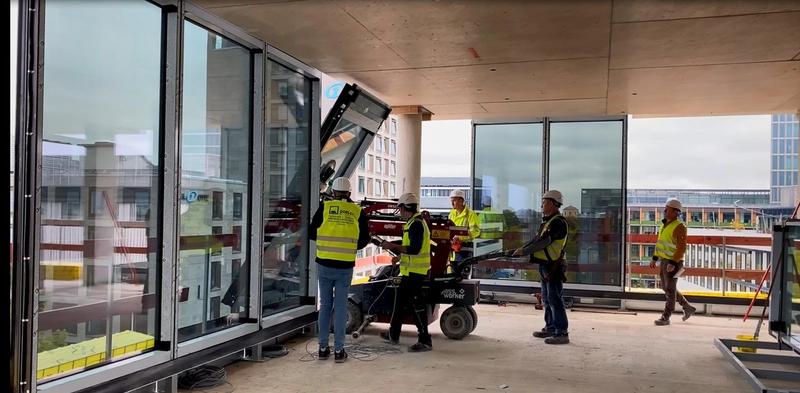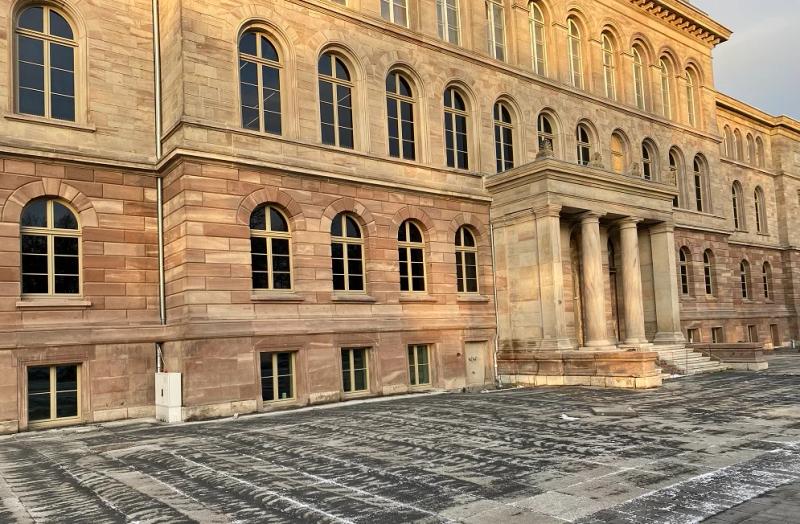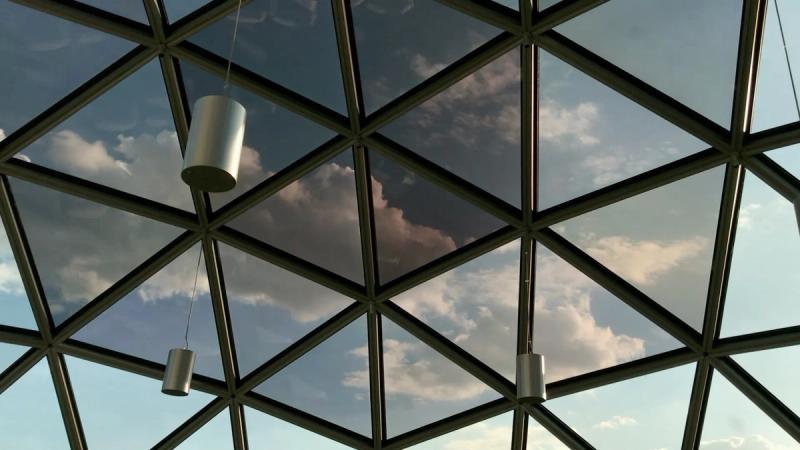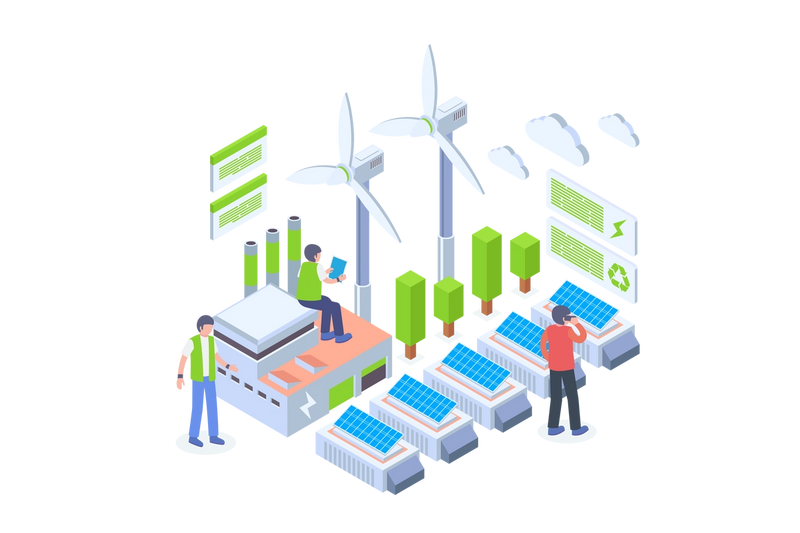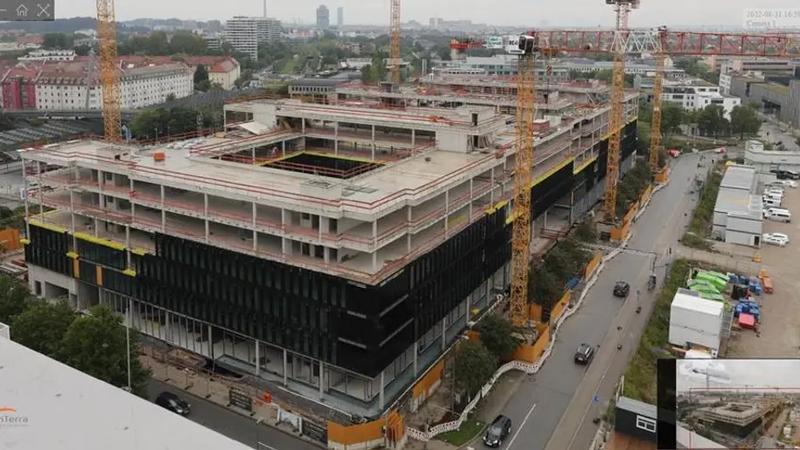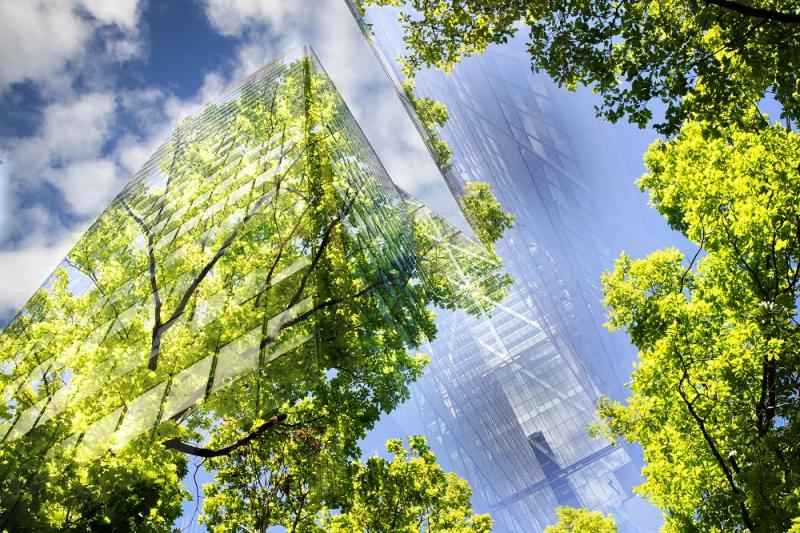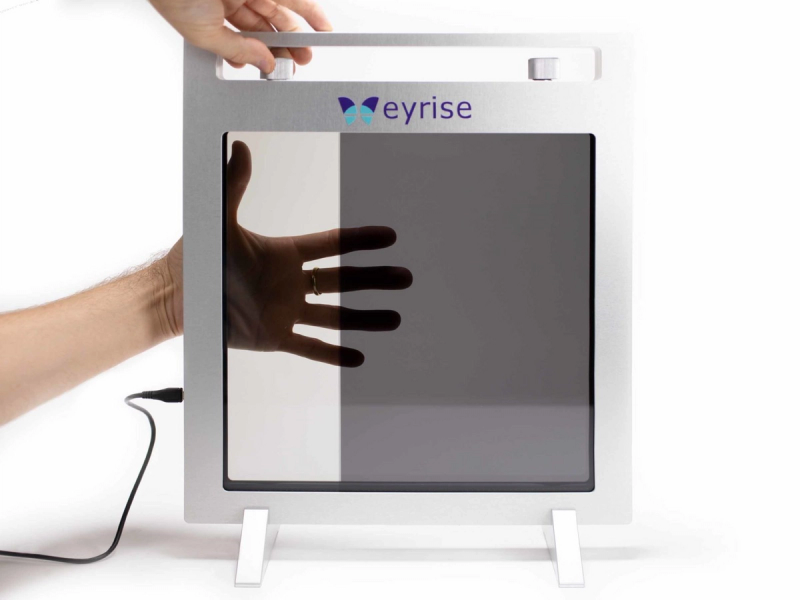
Darkening, switchable Smart Glass Holds Key to Greater Control of Sustainability
Switchable glass can increase overall sustainability with a flick of a switch. This darkening glass is a smart solution and a much-needed green technology.
Darkening Smart Glass
Smart glass technology is nothing new. However, darkening glass has become extremely popular in recent years as the desire for sustainable green-tech solutions becomes a necessity for new and refurbished buildings. The implications for sustainability have become increasingly clear and darkening smart glass has become a viable solution as the drive for greater sustainability comes into greater focus. Its potential to reduce energy consumption and improve energy efficiency in buildings can no longer be ignored. This article will discuss the key advantages of darkening smart glass, particularly when it comes to sustainability, as well as how it is being implemented in new construction and in a quest to make existing buildings more sustainable.
How Darkening glass can help any building to increase its sustainability of a building
Studies have shown that by using darkenting glass like eyrise liquid crystal windows (see Out Of the Blue report from Elementa), real estate and construction can benefit from this technology. Darkening glass helps to reduce energy costs by blocking out sunlight and heat transfer. This means that less energy is needed to cool the building during warmer months, which results in lower building emissions and a more sustainable footprint. The embedded carbon can be reduced because eyrise s350 has a lower Global Warming Potential than an equivalent with mechanical blinds. Additionally, darkening glass such as the eyrise s350 solar glazing increases productivity and well-being for occupants, making it an attractive option for increasing the value of any real estate property. Overall, darkening glass has proven to be a great investment for buildings and their occupants, helping to reduce environmental impacts while simultaneously providing added comfort and security.
Benefits of Smart Darkening Glass
There is a reason smart darkening glass is becoming increasingly popular. Smart darkening glass is a type of tinted window that can be controlled by the user to reduce glare and control temperature levels inside the building by filtering UV radiation. This type of advanced technology offers many benefits to individuals and businesses alike.
When activated, the tint on the windows will become darker, providing an effective barrier against UV rays and excessive sunlight which can otherwise cause eye strain and discomfort for those inside the building.
Improving Sustainability
As climate change becomes more evident, sustainability has become an increasingly important issue in today's society. To help reduce energy consumption, many organizations are turning to smart darkening glass as a way to save on electricity and improve their environmental footprint. Smart darkening glass is an innovative type of building material that can adjust the amount of light passing through it based on the time of day or season. This ability helps to reduce energy costs by decreasing the need for artificial lighting during daytime hours. Smart darkening glass can also be used to control temperature levels inside buildings since it limits the 'greenhouse' effect that a large building with a glass façade can produce. When the glass goes from bright to dark, it can insulate the people inside from UV radiation and glare much more than ordinary glass. This can help lower air conditioning usage during summer months when people typically want cooler interiors. It can also allow more UV in during the winter months with a flick of a switch reducing heat consumption needs. The technology can automatically allow sunlight into a room when temperatures are low, while keeping heat out in hotter climates. This not only helps reduce energy costs but also ensures comfortable conditions for occupants within the building or home.
Cost & Installation Factors of darkening smartglass
Before you make an investment in this type of glazing, it’s important to consider both the maintenance cost and installation factors. The cost of darkening smart glass can vary depending on the size and type of window. However, when considering these costs, it is important to look at the long-term benefits. Once you factor in the zero maintance cost, the long-term sa-vings of heating and cooling as well as the environmental impacts, and the incentives many governments offer for environmental initiatives, installing darkening glass can be less expensive for building owners in the long run. Once installed, these types of windows could help save money in energy bills over time by reducing heat transfer through insulation, while the maintenance cost is reduced to almost zero.
Different types of Smart Glass
There is a big difference between the types of darkening glass. Liquid crystal windows, PDLC (Polymer Dispersed Liquid Crystal) and electrochromic technology are all technologies used to regulate the amount of light that passes through a window. The main difference between these technologies is the way in which they work. Liquid crystal windows use tiny liquid crystals suspended in an electrically charged film that blocks or transmits light depending on the applied voltage. PDLC works similarly, however it uses a polymer film and can only be used to diffuse light (privacy), not to reduce the light and heat transmission. Electrochromic technology changes the transmission value of glass by using electricity to change its molecular structure from clear to tinted and back again. All three technologies can be used to control the amount of light passing through a window, however, they all have their differences when it comes to how they work and the results you can expect from each technology. The main difference is that electrochromic glass usually have a blue or yellow tint, making natural light views impossible. Liquid Crystal Glazing doesn't interfere with full-spectrum light, so the color of the natural light remains unchanged. Only a eyrise s350 smart window panel has this ability making it, by far the best smart glass on the market.
The future of smart glass offers great potential for greater sustainability by reducing energy consumption and limiting the amount of resources used. Its ability to control light and heat, and create a safe atmosphere makes it an ideal choice for both homes and businesses alike. Furthermore, its flexibility in adapting to different climates and various types of environments is advantageous. As more real-estate investors see the benefits of dimmable glass for large scale projects, smart darkening glass could hold the key to promoting greater energy efficiency and sustainability over time.
